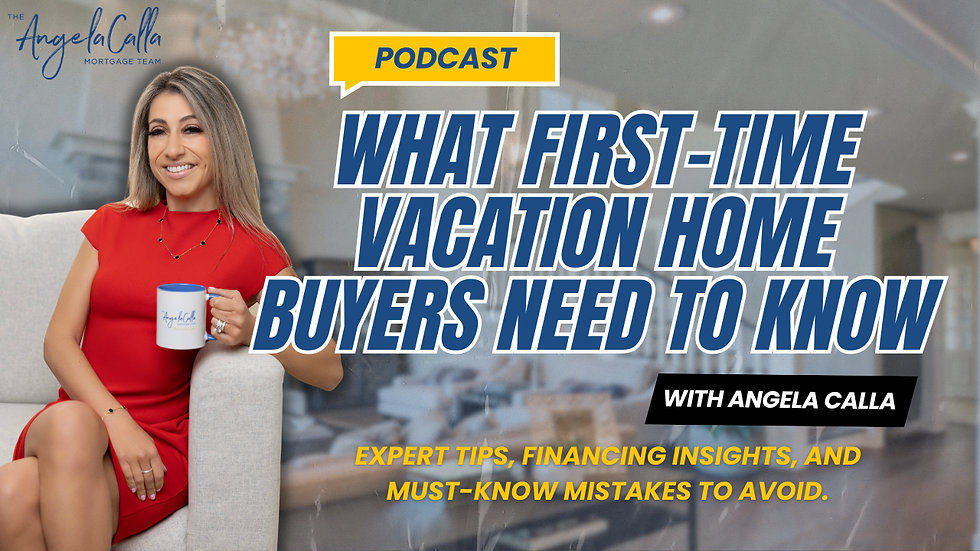January Financial To-Do List
- Angela Calla

- Dec 30, 2021
- 4 min read
Updated: Jan 10, 2022
1. Run a financial inventory
It’s time to take a hard look at your financial habits – is your spending out of control?
Millennials say they spend an average of $478 a month on “nonessential” purchases like nights out, new clothes, and other “extras.” Do the math and that comes out to a yearly total of $5,736 that could be put toward an emergency fund, vacation budget, or retirement savings.
A basic financial inventory can be used to get some insight into how much money you have and where you may need to rein in your spending. Examine your income and compare it to your average monthly expenses. Are you spending more than you earn? Do you have money left over at the end of the month?
By taking stock of your current financial state, you’ll be well-poised to tackle the next task.

2. Make S.M.A.R.T. financial goals for the New Year
It’s time to set financial goals for January – and beyond! With financial inventory in hand, you should have a better idea about where you should focus your energy. Perhaps you’ve found that you’re spending too much money on takeout, or maybe it’s time to focus on paying down student loan debt. Whatever you’ve discovered, it’s important to set your financial goals using the S.M.A.R.T. methodology:
Specific: Your goal needs to be as specific as possible in order to ensure you achieve the end results you’re after. As you craft your goal, include as much detail as possible. For example, instead of saying “I want to make more money,” you might say “I want to get a second job to make more money.”
Measurable: How will you know you’ve reached your goal? Make sure your financial goals have clear benchmarks. For example, saying “I want to spend less” should be “I want to save $1,200 this year by spending $100 less per month.”
Achievable: It’s great to aim high, but don’t create goals that aren’t feasible. By identifying what you hope to achieve financially, you can spot potential challenges upfront. Is your financial goal possible? Do you have the ability to make it happen, and what do you need to do in order to get there?
Relevant: Is your goal relevant to you? Does it fit with your overall financial plan? If your goal is to save money for a vacation fund, but you already have a robust savings account, you may want to focus your energy elsewhere.
Time-bound: Set a time limit to keep yourself accountable. By selecting an end date, you can break down your overall goal into smaller, more actionable steps. For example, if you want to save $450 for a new television by the middle of June, set monthly goals to save $75.
3. Download a budgeting app
Keeping your budget close at hand can help you stay accountable. Up to 69% of smartphone users agree that budgeting apps have helped change their spending habits.
When you're budgeting to save for a downpayment or to move up the property ladder it's important to understand and weigh all the costs associated with it.
Within a budgeting app, you can track your budget in real-time, and set financial goals. Download My Mortgage Toolbox to map out these variables and feel empowered with your financial decisions.
4. Create a monthly budget
It’s important to understand what you can spend each month, but only 41% of Americans say they use a budget. Once you understand where your money has been going, you can create a plan for how you’d like to spend (and save!) it moving forward.
If you discovered you’re spending more than you make, cut down on unnecessary spending. If you’ve found you have extra money, you may want to put it towards an emergency fund.
Creating a monthly budget now can help ensure you reach your long-term financial goals.
5. Set up auto-payment for all of your bills
In today’s technology-driven world, paying your bills is easier than ever. Automatic bill payments allow you to transfer money from your bank or credit account directly to a creditor, vendor, or service provider on a pre-specified date. That way, you don’t have to initiate the payment every time a bill is due.
6. Take back holiday returns
Over the holidays, you may have received some gifts that didn’t quite hit the mark. As January comes to a close, make sure you take back any holiday returns.
Many retailers provide a 30-day return period, so make sure you head back to the store and turn those unwanted gifts into cold hard cash (or gift cards) that you can use later on in the year.
Angela Calla is a 17-year award-winning woman of influence which sets her apart from the rest. She is without a doubt, a true expert in her field. Alongside her team, Angela passionately assists mortgage holders in acquiring the best possible mortgage. Through her presence on “The Mortgage Show” and through her best-selling book “The Mortgage Code“, Angela educates prospective home buyers by providing vital information on mortgages.
In August of 2020, at the young age of 37, Angela surpassed $1 Billion dollars in funded personal mortgages. In light of this, her success awarded her with the 2020 Business Leader of the Year Award.
Angela is a frequent go-to source for media and publishers across the country. For media interviews, speaking inquiries, or personal mortgage assistance, please contact Angela at hello@countoncalla.ca or at 604-802-3983.










Comments